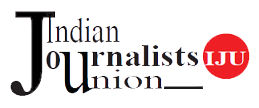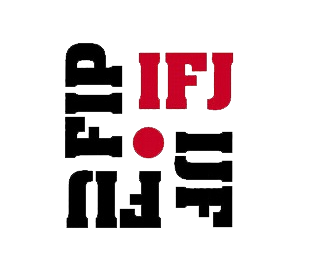- Geetharth Pathak
Recent landmark judgment of the Apex Court is analysed from the journalists' perspective and its impact on freedom of press in North East.
The recent judgement of the Supreme Court (SC) on large scale encounter killings in Manipur by armed forces and the police while dealing with insurgency and militancy is indeed a landmark judgement. However the judgement only echoed the apex courts earlier observations. The judgement by the five judge bench of SC in Naga People's Movement of Human Rights Vs Union of India the court in 1997 reiterated the same concerns. However in view of the large scale allegations of rampant violation of human rights in some areas of Manipur and Jammu & Kashmir, the recent judgement would give momentum to the demand for scrapping of Armed Forces (Special Powers) Act (AFSPA).
The judgement of the SC has wide implications to end impunity even beyond the scope of AFSPA. We are looking at this judicial development from journalistic perspective. The journalist community and its professional bodies stand for rule of law and preservation of individual liberty. There are similar AFSPA like laws in some other states where the armed forces and the police are violating human rights at their whim. Chhattisgarh police often harasses and arrests journalists by misusing Jan Suraksha Adhiniyam, or Public Safety Act (PSA) and the Unlawful Activities (Prevention) Act, which is another avatar of AFSPA.
A bench of justices Madan B. Lokur and Uday Lalit on July 8, 2016 gave this ruling on a PIL filed by Extra Judicial Execution Victim Families Association alleging 1,528 fake encounter deaths in Manipur in the last decade and demanding a probe by a special investigation team. The Apex Court said in the judgement that if members of the armed forces were deployed and employed to kill citizens of the country on the mere allegation or suspicion that they were 'enemies', not only the rule of law but also democracy would be in grave danger.
The Court rejected the Centre's submission that a person carrying weapons in violation of prohibitory orders in the disturbed area of Manipur was ipso facto an enemy or that the security forces in Manipur in such dealing with an 'enemy' as defined in section 3(x) of the Army Act. It observes that killing an 'enemy' is not the only available solution and that is "what the Geneva Conventions and the principles of international humanitarian law tell us." The present spate of violence that engulfed the Kashmir valley in the aftermath of gunning down of Burhan Ali, the 22 year old commander of Hizbul-Mujahidin by the security forces could have been better controlled if the government paid heed to the above mentioned observation of the Apex Court.
It is a fact that the law and order situation in Manipur is still grave. Since the extra power bestowed on the armed forces has failed to control the situation since last 60 years we may conclude that the problem lies elsewhere. Some of the intellectuals opine that AFSFA must be replaced with another 'humanised' law. All laws that govern civil society must be human and not jungle laws.
However in Manipur and also in some other states of Northeast the fault does not lie with the laws. One of my friends from Manipur said "In Manipur everything from politics to elections are controlled from the jungle and without a holistic approach the government cannot bring a solution to the vexed problem by using force only. The people of the state are like pawn in the hands of a number of militant groups that are fighting each other. The journalists are caught between the authorities and the militants. The militants and some of their overt avatars can stop distribution of newspapers published from metros; they can issue diktat to the newspaper houses to publish or not to publish particular news-item or a statement by a rival militant group. The newspaper establishments and the journalists can at best suspend publication of newspapers for a week or more and attract the headlines of national media."
The situation in other North-eastern states is not as grave as Manipur, but journalists are facing harassments from both the militants and the armed forces. We all are aware about the letter written by the officials of Assam Rifles to the Editors of the Newspapers of Nagaland dictating that "Any article which projects the demands of NSCN (K) and gives it publicity is a violation under the Unlawful Activities (Prevention) Act 1957, and should not be published by your newspaper." Fortunately Press Council of India took up case suo motu on a representation from Indian Journalists Union (IJU) against Assam Rifles and eventually the armed force had to withdraw the diktat.
Tripura government last year has withdrawn AFSPA from the state after the draconian law was in force since last 18 years to tackle the menace of the National Liberation Front of Tripura and All Tripura Tiger Force. Though the state is governed by the left parties, attacks on freedom of press are continuing. A District Magistrates here compared newspaper with toilet paper. The Tripura Journalists Union protested and lodged a complaint with the Press Council of India. AFSPA is in force in Assam since 1990 when the state was under the grip of militancy led by ULFA.
ULFA killed a number of journalists in the state. Mediapersons of Assam are regularly being harassed by the police and security persons. Mizoram is an island of peace among the states of Northeast and AFSPA is not in force in Meghalaya. Arunachal Pradesh is under the ambit of the draconian law but the people of the state protested against enforcing it.
Northeast has become a dangerous place in the country for working journalists with as many as 26 journalists killed Assam alone since 1990. In Manipur 8 journalists were killed during this period. And none of the killers of these journalists were brought to book by the investigating agencies so far. Some preliminary reports indicated the involvement of militants, forest mafia, political leaders and security forces in the killings of the journalists of these states.
Transparency and accountability in governance and particularly the functioning of the armed forces are a prime requirement in a democracy. The recent judgement of the apex court will hopefully break the cloak of secrecy about unaccounted deaths involving security forces in disturbed areas and serve as a judicial precedent to uphold civilian and human rights in sensitive areas not only in Manipur and other states of Northeast as well as in other states of the country. The judgement will also contribute in ensuring freedom of media in conflict zones of the country.




